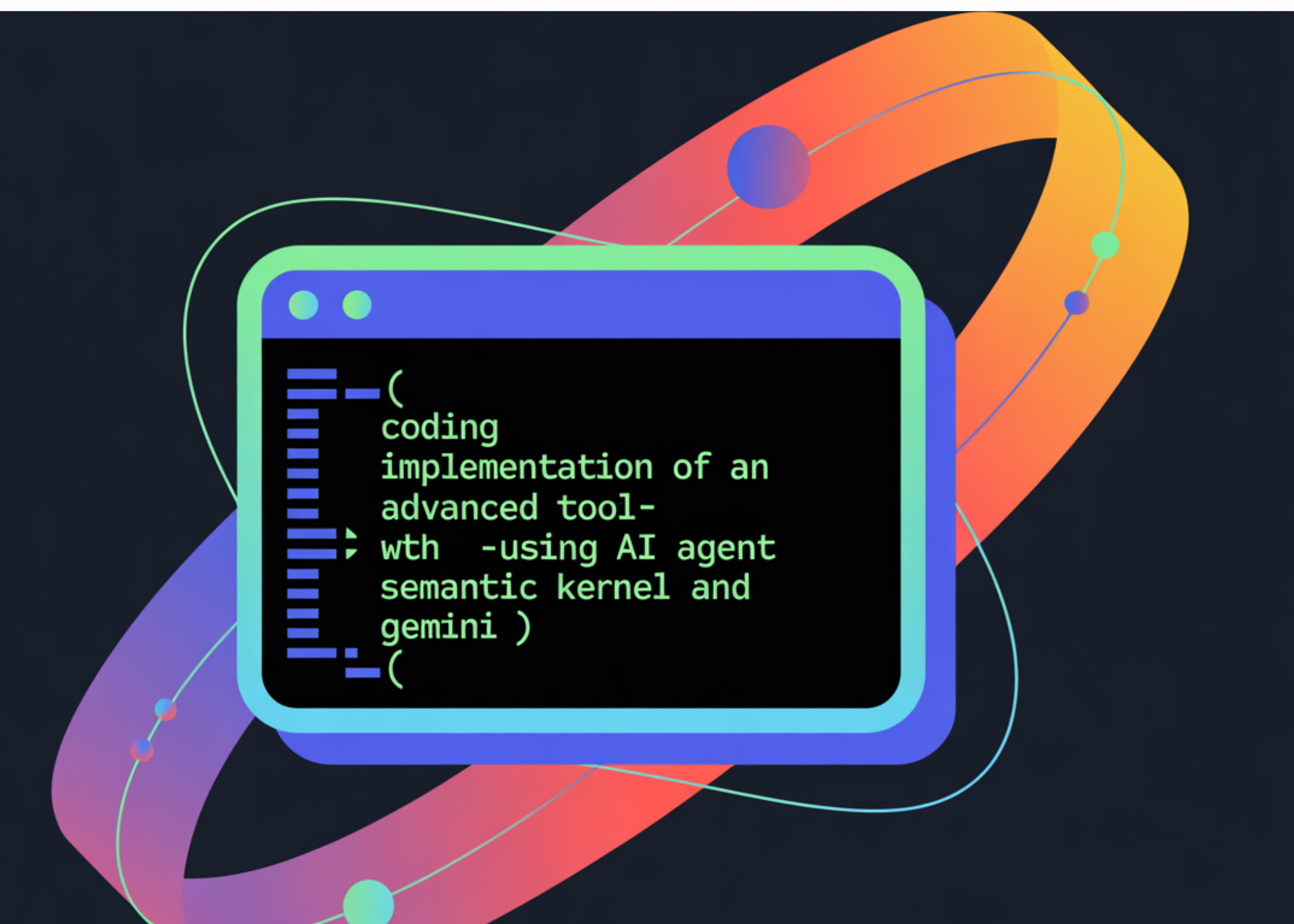
Building an Advanced AI Agent with Semantic Kernel and Gemini
In a recent tutorial, Asif Razzaq explores the creation of an advanced AI agent utilizing the Semantic Kernel in conjunction with Google’s Gemini free model. This innovative approach allows users to seamlessly deploy the agent on Google Colab, taking advantage of various plugins for enhanced functionality.
Key Features of the Tutorial
- Tool Integration: The tutorial guides users through wiring Semantic Kernel plugins to serve as tools, such as web search, math evaluation, file I/O, and note-taking.
- Orchestration with Gemini: Users learn how to let Gemini orchestrate these tools through structured JSON outputs, resulting in a cohesive workflow.
- Interactive Learning: The tutorial emphasizes the agent's ability to plan, call tools, process observations, and deliver final answers effectively.
As part of the implementation, users begin by installing necessary libraries and importing essential modules, including Semantic Kernel, Gemini, and DuckDuckGo search. Setting up the Gemini API key and model is a crucial step, allowing the generation of diverse responses that enhance the agent's capabilities.
Rounding out the tutorial, the author provides a comprehensive code structure that demonstrates the practical application of these tools in real-time scenarios, ensuring readers can follow along easily.
Rocket Commentary
Asif Razzaq's exploration of creating an advanced AI agent using Semantic Kernel and Google’s Gemini model highlights a significant step towards making AI more accessible and functional for a wider audience. The tutorial's focus on integrating various plugins for practical applications like web search and note-taking underscores the transformative potential of AI in everyday tasks. However, while the orchestration of these tools promotes efficiency, it also raises questions about the ethical implications of automation. As we harness these innovative technologies, we must remain vigilant about ensuring that AI deployment prioritizes user privacy and data security. The industry must champion responsible development practices that empower users while mitigating risks associated with AI, ensuring that these advancements contribute positively to both business and societal outcomes.
Read the Original Article
This summary was created from the original article. Click below to read the full story from the source.
Read Original Article